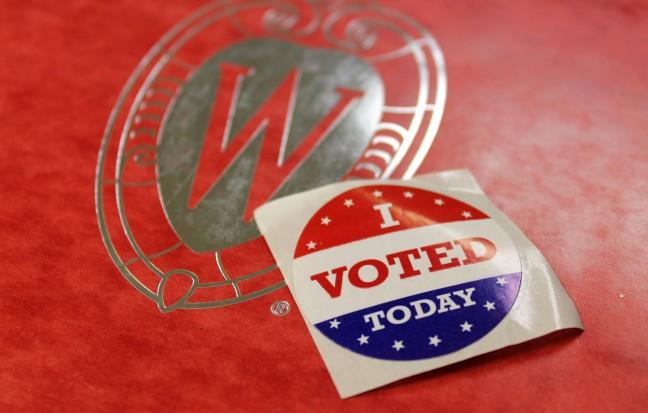Though the Wisconsin spring presidential primary has come and gone, many are still concerned with the “voter suppression” that occurred at polling places, particularly for college students.
Across University of Wisconsin’s campus, students were discouraged from voting because of voter ID hurdles and longer lines.
Rep. Chris Taylor, D-Madison, said part of the reason these problems occurred was because the Legislature failed to fund a public information campaign on voter ID.
In the voter ID law, it specifies that a “public informational campaign” is required to “[inform] prospective voters of the voter identification requirements.” For this campaign to have occurred, the Government Accountability Board would have had to request funding from the Legislature to launch a campaign, which never happened this election cycle.
Michael Haas, G.A.B. elections division administrator, said the reason the G.A.B. didn’t request funding was because they received no indication from the Legislature that funds would actually be allocated. He said the G.A.B. director had conversations with individual legislators about the additional funding last year, but it was not met with support.
“The Legislature is certainly aware that we do not have funds at this time,” Haas said.
Funds for a voter education campaign were given to the G.A.B. when the voter ID law was first passed in 2011, Haas said, but then the law was put on hold by the state Supreme Court. Haas said some of that money was spent to start a public education campaign, but the campaign stopped when the law was put on hold.
Taylor said because of a lack of voter ID knowledge, constituents came to her with complaints of challenges they faced while trying to vote in Madison.
At the Doyle Administration building, Taylor said students in particular faced a lot of issues. Some students had to leave for tests, others had issues proving their residency online because some polling centers didn’t have internet.
The League of Women Voters of Wisconsin had 105 volunteer election observers at polls across the state to observe the effects of the voter ID law, Executive Director Andrea Kaminski, said.
Kaminski said the new law had a greater impact on students than other populations.
The most notable issue on the day were long lines, Kaminski said. The process goes slower because there are so many requirements to vote, which all need to be checked by poll workers, Kaminski said.
But Haas said poll clerks thought the reason lines were long was because of voters who needed to register at the polls, not because of the voter ID requirement. Some students didn’t have the right document to show they were enrolled at the university, which took up extra time, Haas said. Either way, Haas said long lines are never something they like to see.
Other students had to leave the polling center to get an ID, and it is not known whether they made it back to the polling center to vote, Kaminski said. Others voted with a provisional ballot, but the majority of the time these ballots are not even counted, Kaminski said.
By the end of the month, the League of Women Voters of Wisconsin hopes to have a final report of its findings, Kaminski said.
While some felt the problems created by the voter ID requirement were pervasive, Haas said he thought the voting process went smoother than it did during the February primary. He said workers did a better job of checking the required materials, but also noted areas for improvement.
The G.A.B. received thousands of calls on election day regarding a variety of subjects, some with questions about voter ID. Some had complaints that poll workers may not have been checking things as well as they should. Haas said it can learn from these issues to better train clerks during the fall election. Another way to alleviate issues would be to increase staffing at polling centers, he added.
During the fall election, Taylor said Wisconsin will have around a million more people voting, and the problems faced during the primary will be exacerbated.
“We have to make the case for why it’s so important, especially leading into November which is going to be a much bigger election,” Taylor said. “These problems that we saw on Tuesday are going to be magnified if we don’t take really aggressive steps to get the word out.”
Taylor said she hopes people will come to the upcoming G.A.B. meeting April 26 to request a voter ID education campaign.
Correction: An earlier edition of this article misspelled Michael Haas’s last name and stated that all the calls the G.A.B. received on election day were regarding voter I.D. The Badger Herald regrets these errors.


